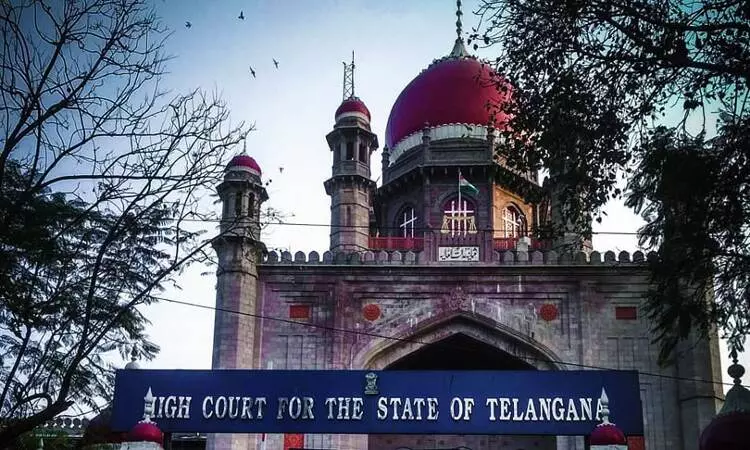Telangana HC dismisses state’s appeal in Manikonda land acquisition case
The court pulled up the Ranga Reddy District Collector for approaching the court with a delay of 488 days
By - Newsmeter Network |
Hyderabad: Telangana High Court has dismissed the state government’s appeal in the Manikonda land acquisition case.
The court pulled up the Ranga Reddy District Collector for approaching the court with a delay of 488 days.
The case relates to 6.22 acres of land acquired in 2001 for the Silicon Heights project at Cyber Park, Manikonda Jagir village.
A division bench of Justice Moushmi Bhattacharya and Justice Gadi Praveen Kumar upheld the single judge’s earlier order directing the state to either allot alternate land to the landowners or, if not feasible.
The Justice also asked to initiate fresh acquisition proceedings under the Right to Fair Compensation and Transparency in Land Acquisition, Rehabilitation and Resettlement Act, 2013.
Landowners allege violations in 2001 acquisition
The disputed land, located in Survey Nos. 203/2, 204, 205, and 206/A had been purchased by several individuals for residential use. The government issued a preliminary notification on June 8, 2001, invoking the urgency clause under Section 17(4) of the Land Acquisition Act, 1894.
However, the authorities took possession only on July 2, 2002, and passed the award on December 13, 2002, well beyond the three-month limit prescribed under Section 17(5). The landowners argued that once this timeline lapsed, Section 5-A, guaranteeing the right to object and seek a hearing before acquisition, became automatically applicable.
They also complained that while 50 acres of alternate land were allotted to the TNGO Housing Society, no such relief was extended to them, prompting the court challenge.
Collector blames elections for delay
Challenging the single judge’s ruling, the Ranga Reddy Collector filed an appeal with a delay of 488 days. The government’s counsel attributed the delay to the Collector’s “heavy official responsibilities” during the 2023 Assembly elections, the 2024 Lok Sabha polls, and subsequent welfare programme implementation.
The bench rejected these reasons outright. Justice Bhattacharya, writing for the court, observed: “The stand taken by the appellant / District Collector who seeks condonation of delay cannot be borne out of privilege and a sense of entitlement.”
‘No special privilege for the state’
The judges made it clear that the government cannot demand a “separate period of limitation” simply because it is a public authority. They cautioned that routine election duties cannot become an “all-purpose justification” for administrative inaction.
In a sharp observation on bureaucratic accountability, the bench remarked, “We are now in 2025. In the light of technological advancement, competence would essentially have to include technology-literate persons who have the wherewithal to remain alive and alert to court proceedings.”
Appeal dismissed, accountability reaffirmed
Concluding that the appeal was both time-barred and meritless, the Division Bench dismissed the State’s plea, reinforcing the lower court’s directive for either alternate land allotment or a fresh acquisition process.